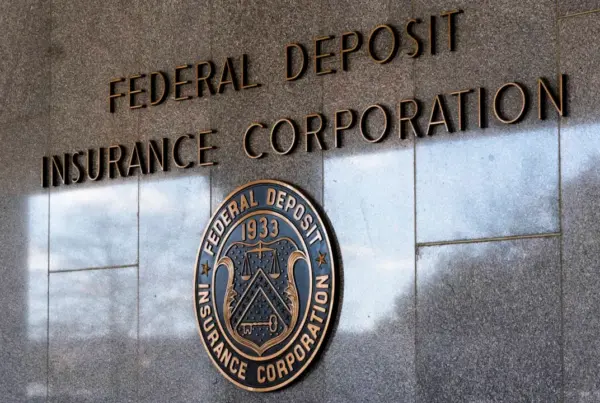“`html
Introduction
On October 11, 2023, the Federal Deposit Insurance Corporation (FDIC) proposed a significant regulatory update concerning brokered deposits. This proposed rule aims to redefine the scope of deposit brokers, imposing stricter requirements on financial institutions that engage with these entities. The importance of this regulatory action is underscored by its potential to reshape deposit-taking practices in response to ongoing concerns about the stability of the banking sector.
Historically, the FDIC has implemented various measures to regulate brokered deposits under the Federal Deposit Insurance Act (FDIA). The current proposal builds upon previous amendments and enforcement actions, addressing the evolving nature of financial services and the associated risks. The primary concern driving this regulatory update is the need to enhance consumer protection and mitigate systemic risks associated with brokered deposits.
Key Regulatory Changes & Analysis
1. Expansion of the Definition of Deposit Broker
The proposed rule significantly expands the definition of a deposit broker to include:
- Fintech companies that aggregate deposits for consumers.
- Online platforms facilitating the placement of deposits with banks.
This change broadens the regulatory scope under Section 29 of the FDIA, moving beyond the traditional definition that primarily targeted conventional brokers.
2. Enhanced Reporting Requirements
Under the new proposal, banks accepting brokered deposits will face additional reporting obligations, which include:
- Mandatory disclosures regarding the source and nature of brokered deposits.
- Regular reporting to the FDIC on the volume and characteristics of these deposits.
These enhanced requirements are designed to improve transparency and enable the FDIC to monitor risks associated with brokered deposits more effectively.
3. Restrictions on Interest Rates
The proposed rule introduces potential restrictions on the interest rates that banks can offer on brokered deposits. This measure aims to prevent unsustainable competition for deposits, which could threaten the financial stability of institutions.
4. Clarification of Exceptions
The proposal clarifies existing exceptions to the definition of deposit brokers, particularly concerning:
- Deposits from affiliates.
- Deposits placed by government entities.
These clarifications are intended to reduce compliance burdens for certain institutions while maintaining essential protections for the banking system.
Legal and Industry Implications
The proposed rule presents several legal and operational implications for affected financial institutions:
- Compliance Burdens: Institutions may incur significant costs related to compliance with new reporting and operational requirements.
- Operational Adjustments: Banks will need to reassess their deposit strategies and potentially restructure their offerings to align with the new regulations.
- Regulatory Risks: Non-compliance may lead to enforcement actions by the FDIC, including penalties or operational restrictions.
Recent litigation surrounding brokered deposits highlights the contentious nature of these regulations, with potential legal challenges anticipated from industry stakeholders.
Recommended Actions & Compliance Strategies
Affected financial institutions should consider the following actions to ensure compliance with the proposed rule:
- Review Internal Policies: Conduct a thorough assessment of internal policies regarding the acceptance and management of brokered deposits.
- Enhance Reporting Procedures: Implement robust systems to ensure accurate and timely reporting of brokered deposits to the FDIC.
- Engage in Public Comment: Institutions are encouraged to participate in the public comment period to express concerns or suggestions regarding the proposed rule. Comments can be submitted through the FDIC’s official channels before the deadline.
Conclusion & Next Steps
The FDIC’s proposed rule on brokered deposits represents a substantial shift in the regulatory framework governing financial institutions. Key takeaways include the expanded definition of deposit brokers, enhanced reporting requirements, and potential restrictions on interest rates.
The timeline for implementation will depend on the finalization of the rule, which is expected to follow the public comment period. Stakeholders should remain vigilant for further regulatory developments, as the proposal may face scrutiny and potential challenges that could impact its enforcement. Financial institutions are advised to proactively adjust their compliance strategies to mitigate risks and ensure adherence to the evolving regulatory landscape.
“`


